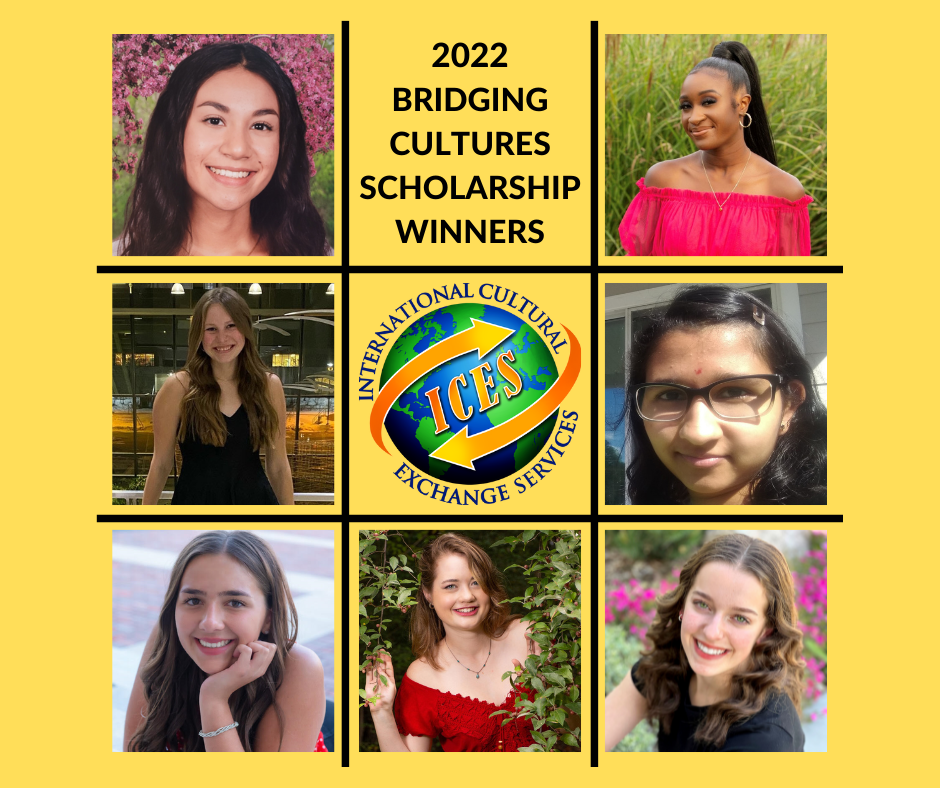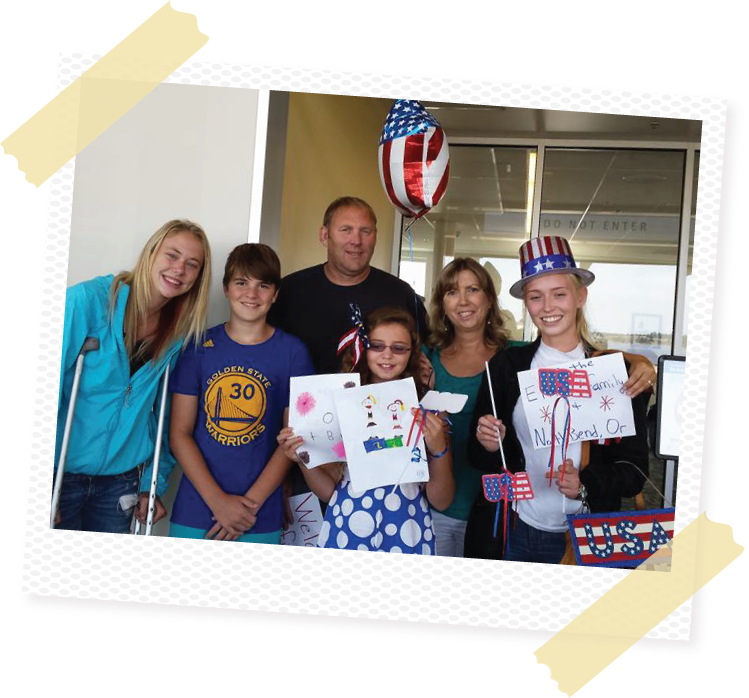How does knowing people from other countries and cultures make our lives better?
That's the question we asked high school students across the U.S. in this year's Bridging Cultures Scholarship essay contest. And they had a lot to say! After reading through the many essays we received--nearly 700 of them--our judges have selected this year's winners.
We are very pleased to introduce each of them and share their winning essays with you.
First Place - $3500 Scholarship Recipient
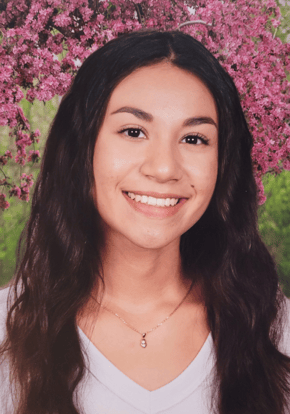
Ana Dragomir - Scottsdale, Arizona
As an incoming senior, Ana is exploring various colleges, both in her home state of Airzona and nationwide. She is open to different majors, but biological science has peaked her interest. Her goal is to find a career in the STEM field that constantly challenges her to grow.
"Where we may only know cultures through stereotypes depicted on television, one-on-one connection allows for greater insight into the rich diversity of our world."
Sitting down at our lunch table in the crowded cafeteria, I take a moment to admire the mosaic of people I spend my afternoons with. The girl to my left is chatting away on the phone in rapid French. The girl to my right is detailing her family's extravagant Diwali festival. The girl across from me shares her tamarind-chile candies, a treat loved by Hispanics. In those brief 30 minutes, I have had a glimpse into various cultures, but lunch is more than just a passing moment. These daily interactions are constantly expanding my view of life, showing how knowing people from other cultures enriches our lives on a deeply personal level.
From the moment we gaze at the world around us with curious infant eyes, we are constantly learning from the individuals in our environment. When people from different cultures are a part of our sphere of influence, we draw lessons from the experiences they share, shelving stories full of valuable information to the library of our brains. Similar to reading a textbook and then experiencing the material hands-on, developing personal connections with people who come from different countries expands our practical knowledge. Where we may only know a culture through the stereotypes depicted on television, one-on-one connection gives us a deeper view into the complexity of our world where diversity satiates our curious nature and keeps us engaged.
Deepening our understanding of the human experience, such interactions broaden our perspective. Like removing blinders that we did not realize we had on, we notice the different ways of life of millions of people. Listening to an individual from another part of the world describe the struggles they faced, we develop a heightened sensitivity to others' suffering. Hearing about the lack of opportunities in certain countries, we grow compassion for others. Often, this stirring of the heart prompts us towards action, such as donating money or volunteering which impacts us just as much, if not more, as we gain a lens of gratitude that causes us to see our lives more holistically.
As conduits of their culture, people bring their part of the world, teeming with vibrant foods and traditions, to us. Perhaps the next best thing to travel, knowing people from other cultures often comes with an invitation to explore areas of their culture first-hand. For example, being invited to authentic restaurants allows us to try new dishes we would have never even known existed. The beauty of a diverse population right outside our front door means that exploration will never stop.
Walking into a local ice cream shop, my lunch friends rush to the glass divider momentarily separating us from our treat. We read through the names: strawberry… cookie dough… Rocky Road… matcha… candied bacon… Much like the varied selection offered by this shop, each one of my friends, hailing from all over the world, brings a unique flavor that makes my life that much sweeter and demonstrates the benefits of knowing people from other cultures.
Second Place - $2500 Scholarship Recipient
 Moniolaoluwa Odunsi - Boyds, Maryland
Moniolaoluwa Odunsi - Boyds, Maryland
Moniola is honored to be attending Harvard next year with an intended major of economics.
"Friendships with people from different backgrounds frequently result in an understanding that dispels false stereotypes, prompts the recognition of similarities and appreciation of differences, and enables necessary learning."
"I never thought about it like that."
I smile inwardly in my Global Justice Class, acknowledging how often I have employed this statement and reflecting on its frequent use as a sign of personal growth.
Students at my global high school, with my peers from Nigeria to China to Chicago, are encouraged to discuss their thoughts and opinions in our school environment. I appreciate the discussions with my classmates, which range from diverse national conceptions of justice to cultural customs because they are viewed through a multi-faceted lens that encourages me to think beyond a US-centric worldview and examine global perspectives. My conversations with my friends from backgrounds that do not mirror mine have illustrated how important it is to know and understand people from various countries and cultures for both my benefit and the benefit of the communities with which I interact. Such comprehension dispels false stereotypes, allows us to recognize our similarities while appreciating our differences, and enables us to learn new ways of thinking and doing things.
Advancements have facilitated cross-cultural interactions, allowing many of us to engage with people from various backgrounds. Yet still, we often succumb to the terrifying power of stereotypes that blinds us from reality and compels us to act on our assumptions about who individuals are and what they represent based on their cultures. Ignorant claims like "people from X country are aggressive" or "people from Y country are uneducated" are frequently perpetuated by the media, clouding our judgments about different groups. We can challenge our false presumptions by engaging in open-minded interactions with people from diverse backgrounds, allowing us to think beyond what we believe we know. By asking questions — the tough and simple —and learning from the answers, we become more exposed to the various traditions, customs, and ways of being that make up the fabric of our global society.
Furthermore, by getting to know a range of people, we can combat the "us versus them" mentality that society perpetuates. For example, the pandemic resulted in a significant spike in hate crimes against Asian-Americans as many ignorantly labeled COVID - 19 as the "Chinese Flu,” exhibiting their racism and xenophobia. Knowing and appreciating people from other countries and cultures prompts us to oppose such prejudice as we celebrate our similarities and the differences that form our individualities. Rather than perceiving diversity as a cause of division, we begin to see it as a source of enrichment in our lives.
Finally, knowing people from other countries and cultures prompts us to learn how to put ourselves in each other's shoes. As we converse with different groups, we cultivate our self-awareness and awareness of others. The contexts for differing beliefs become clearer, and we gain a greater understanding of the values and systems that serve as personal anchors.
Knowledge is power. Specifically, the knowledge of people with stories unlike ours. We can learn, unlearn, and relearn to contribute to our personal development and the development of our desired society.
Third Place - $1500 Scholarship Recipients

Liana Gabrelcik - Beloit, Ohio
In the fall, Liana will be attending the University of Cincinnati with a major in Finance. She is on track to earn her Bachelor's degree in only three years, and she plans to then pursue a Master's degree. Overall, her goal is to become a financial planner, and eventually own and operate a firm.
"Those who choose to remain secluded for the entirety of their lives miss the beauty and growth that comes from interacting with different cultures."
When gardening, you must be willing to transplant your plants in order to help them thrive. Your plant will grow and appear to be flourishing in its small pot, but it has much more potential. Once you transplant your plant into the Earth, it will seem small compared to the world around it. It still has its same beauty, but there are many other plants nearby that you may never have seen before. Not only are there other plants, but there are also intimidating insects, such as bees. The bees will not cause harm to your plant, but will travel across many plants spreading small pieces of them between each other. Allowing your plant to interact with all the elements of nature will only help it thrive, regardless of how scary this change may be.
Interacting with people from other countries and cultures is just like gardening. We, as humans, can only improve so much when we do not connect with the world around us. Some people choose to remain in their own closed-off area for the entirety of their life, missing the beauty and growth that comes from interacting with different cultures. They sit alone in their small pot believing that they are fully grown and successful, when in reality they would be much better off if they accepted the enrichment of others. When we open our hearts to knowing people from other cultures, we begin to understand different perspectives and ideas. An individual person cannot see every inch of the world, but we can see a glimpse of it through interacting with others who have seen different portions. Being that everyone has different knowledge, we can work together to better each other and our attitudes. When we have a deeper understanding of each other, we become more content with ourselves as a piece of the entire picture; or as a plant in the garden.
Not only do our hearts and minds grow when we connect with others from different cultures, but we are given opportunities for new experiences. Differences between cultures and ideas are not a negative barrier to overcome, but rather something that should be embraced and celebrated. People want to share the beauty of their culture through various foods, art, clothing, religious practices, and languages. If we accept this exchange of knowledge and new experiences, we will never stop finding sources of joy. If we transplant ourselves into the Earth around us, we will grow.
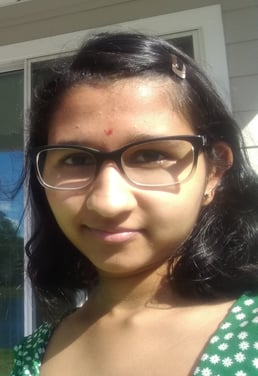 Pravalika Eluka - St. Johns, Florida
Pravalika Eluka - St. Johns, Florida
"By making friends from other countries and cultures, we become children again, taking in all the things the people in our world have to offer without prejudice or judgment."
I remember pressing a sparkling bindi between my eyebrows and the intrigue my teacher expressed when she saw it. I remember Chinese characters written with ink that dripped from a woman’s brush. I remember letters from a French girl, typed carefully in elementary English. I remember my friends’ discussions about Ramadan and their recaps of nights filled with celebration.
Growing up, I was surrounded by people from different countries and cultures. I learned about the ways people live, the customs they cherish, and the experiences they’ve had. My absorption of this knowledge was pure childlike wonder. It is critical for us to become acquainted with people from other countries and cultures because it restores the childlike wonder that makes our lives so joyous.
When we know people from other countries and cultures, we eliminate the idea that only our own country and culture exists. We take a moment and set aside all that we do know, and with that, curiosity blooms within us. We then crave to try something new. It is in having those new experiences and stepping out of our comfort zone that brings about excitement, exhilaration, and all the other emotions that get our hearts beating a little faster and our smiles stretching a little wider.
I experienced that childlike wonder on my most recent trip to India, and I recall the pumping heart and enormous smile that remained for weeks after I returned to the United States. In India, I witnessed beauty in the form architecture that has stood for centuries. I tasted treats that are more flavorful than those found at home. I was spoken to in a language that I had once forgotten, and now seek to re-learn. When I was in India, every moment encompassed a new experience, whether it was as simple as washing my hands with water from a well or looking down from a 160-ft-tall 431-year-old structure.
With my trip to India, my appreciation of the Indian culture was cultivated. Since most of my family lives in India, and since my parents grew up there, I knew that my hunger for further immersing myself in the culture did not have to end in a plane ride back to the United States. I have the opportunity to continue taking in the Indian culture until I experience as much of it as I can, because I am close to people who can teach me more about it because it is their own culture.
When we meet people from different countries and cultures, we are actively seeking to see through a new lens. We become children again, taking in all the things the people in the world have to offer without assuming that we already know all that this world consists of. We consume things that are new to us, yearn to learn more, and become more open to cultural diversity. Giddy with curiosity, we smile more, and instantly our lives become better.
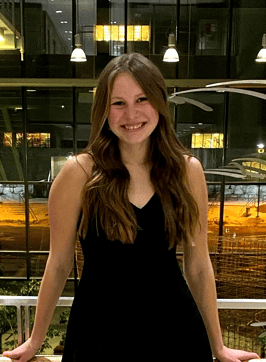 Ella Solin - Stevens Point, Wisconsin
Ella Solin - Stevens Point, Wisconsin
"When wisdom from different cultures and countries is combined and we as a people work together, the world becomes a better, more understanding, place to be."
As a kid, I was fortunate enough to be able to travel to Mexico multiple times with my grandparents. My favorite part, while it is hard to rank anything over the ocean, was being immersed in the culture. Instead of staying in resorts or eating at restaurants on the beach, we found small hotels in villages owned by local families and ate at small family-owned restaurants. We rode city buses to explore Mayan civilizations for hours on end. My grandpa has always been fascinated by archeology and ancient civilizations, and I adored listening to him tell me everything he knew about their culture. My grandma taught me key Spanish phrases so that I could break the language barrier, beyond the average tourist “gracias”, to be able to interact with locals. Spending this time surrounded by a different culture in a different country taught me that choosing to expose yourself to and embrace those from other countries and cultures opens you to new ways of thinking and gives you insight that helps you to be more understanding of where other people are coming from.
Listening to different viewpoints and ideas is what helps us learn about the human experience as a whole. In seventh grade, my English teacher compiled a collection of fairy tales from different cultures around the world. It was striking to see how different variations of these stories taught the same lessons in similar ways. These similarities in values and ideas about universal themes tie people from different cultures together, but differences do too. It is critical to be able to step away from your own understanding of the world and take time to try to view it from different perspectives. The place to find these different perspectives is from people who are from different backgrounds and cultures. Everyone has their own understanding of the world, and it is only when we are able to combine these understandings that we are able to see the world for what it truly is.
The lack of diverse knowledge is what leads to uninformed decisions and conflict. It is easy to get caught up in one way of thinking. Even history is edited so that students learn what their countries want them to. These strong feelings of superiority have only caused tragedy in the past. Being exposed to viewpoints from different countries improves our lives by helping us to form a full understanding of what has actually happened in our world.
Forming connections with people from different countries and cultures improves our lives because they teach us that diversity is the most important, beautiful thing in our world. Diversity is what ensures growth in our communities. When wisdom from different cultures and countries is combined and we as a people work together, the world becomes a better, more understanding, place to be. These connections are what improve not only ourselves, but humanity as a whole.
 Jesilyn Mabrey - Lanett, Alabama
Jesilyn Mabrey - Lanett, Alabama
- Jesilyn plans to attend Rose-Hulman Institute of Technology to pursue a degree in either biomedical or optical engineering. She ultimately wants to help improve medical technology so tests and processes for sick people are more accessible, accurate, and take less time.
-
"Becoming friends with someone from another culture benefits both individuals greatly because of the new viewpoints understood, empathy developed, and increased global unity that arises from a simple hello."
Wind whips across a dazzling blue sea, arcing a canvas sail and motivating a boat into motion. Salt water licks the hull, eager to taste for itself the exotics that wait inside that wooden float. Many have made the journey from shore to shore searching for wealth, prosperity, freedom, and many more ideas. Coming and going, these people gave and took. Sometimes intentionally, other times not so. Crops, gold, disease, furs, guns, people, all have made their ways across the seas in the name of trade. Students today may not think of all the things that went before them when they decide to cross the seas, but little do they know they participate in an exchange as well.
As a student steps onto foreign soil they still carry their country with them. The way they walk, their mannerisms, their language, and their heritage all stays with them. When they interact with a citizen of the new country, not only is the student exposed to new idioms and customs but so is the curious citizen. Of course one side may receive more than the other, but who said all trades were even? This exchange of even simple words and aspects of culture broadens one’s view. One gets to see the different sides of humanity through different classes, religions, and races. Viewing humanity in such different lights leads to an elevated development of empathy for fellow humans and their sufferings and joys.
Understanding also starts to take place within these conversations. Barriers break down as the student reveals some of the odd quirks of their country, the myths, the superstitions, and the traditions while the student’s new family can explain what those are in the new country. This helps enable globalization. The new ideas that stem from broadening one’s perspective can promote curiosity and an emboldening knowledge to craft a novel future. Being globalized creates a more nuanced perspective of the complex challenges that oppose humanity.
With a newfound empathy and deeper understanding all originating from knowing others of a different origin, it's easy to see the benefit of knowing diverse people. Whether they come from blistering sands to frigid snow, the insights and different frames of mind from those inhabitants can enrich life for mankind and have their lives enriched as well. No matter where we come from or where we go, our experiences help guide us, sculpting us into a new wiser creation. Meeting new people is a way we become something new. Regardless of how the winds blow us together, the stories and experiences of our lives are traded for those of others, and hopefully this neverending trade can end in a better future for us all.
 Callie McGehee - Meridian, Idaho
Callie McGehee - Meridian, Idaho
Callie plans to attend Boise State University and double major in Global Studies and Linguistics, with a minor in Spanish for Business. It is her dream to study and work internationally.
"Creating and maintaining friendships internationally removes selfish mentalities or tendencies and provides us with a greater understanding of how everyone relates to each other."
What comes to mind when we think about countries and cultures? Do we think about the global impact when two separate factions have a dispute? Do we think about the food and drink we could experience if we toured a city? When cultures come to mind, we may ponder the differing customs that are the norm among the locals. When we learn about countries and how they contrast from our own, it can promote global awareness and sensitivity. For me, I think of the variety of benefits and lessons that can be discovered when we interact and connect with people from other places.
The common saying, you are the average of the five closest people in your life, demonstrates an interesting phenomenon when we interact and connect with people from differing places abroad. When we know people from other locations, the result is an improvement in social, economic, governmental, and communal awareness of others and self. Wouldn’t you want to avoid a life of ignorance and having no understanding of what’s going on outside your nation’s borders? Understanding cultural customs brings a new consciousness and merit to your own culture, education, and relationships. This allows for a deeper appreciation of what we learn in our local education programs, such as world literature.
Sociologically, studying culture can also teach us plenty about how we form relationships and how that differs globally. Learning about local philosophy and ideology brings about thoughtful rhetoric on one’s own worldview and teaches us to meet people with open mindedness. In turn, this improves the strength of our own personal beliefs. We can also learn how to defend and question our morals and how to listen to other ideas from a just perspective. While it can be distressing to hear about the daily challenges others face in their countries, it can make our lives better because it improves empathy towards others and gratitude for our own governmental, physical, emotional, and communal situations. This empathetic mindset can also be the catalyst for advocation for marginalized groups.
Humans naturally compare themselves. While this can be harmful, when we know people from other locations of the globe, it can boost our sense of self-identity due to the exposure to different personal recognitions and beliefs. We can also celebrate our differences when we learn about contrasting lifestyles in a positive manner. Additionally, taking interest in other’s lives that are completely unrelated to ours removes selfish mentalities and tendencies and provides us with a greater understanding of how everyone relates to each other internationally. This can help us be more considerate and empathetic to any person we meet regardless of their origin.
There truly are only healthy benefits to knowing people from other countries and cultures. As individuals, we can become a more well-rounded person when we embrace and celebrate our counterparts. So, what’s keeping us from diving into interaction with different people from countries and cultures when there’s only something to gain, and nothing to lose?
|
Knowing people from other countries and cultures absolutely makes our lives better! And ICES can help you do just that. How might you get involved? Become a Host Family– ICES is always looking for caring families to open their hearts and homes to high school students from around the world. Learn more here or browse profiles of students coming this fall here. Become an Exchange Student– ICES offers summer, semester, and academic year programs to various countries around the world. You don’t have to wait until college to study abroad! Learn more here. Become a Global Ambassador – High school students can promote cross-cultural understanding in their own communities by volunteering as an ICES Global Ambassador to increase program awareness and provide peer support to exchange students in your area. Learn more here. |

